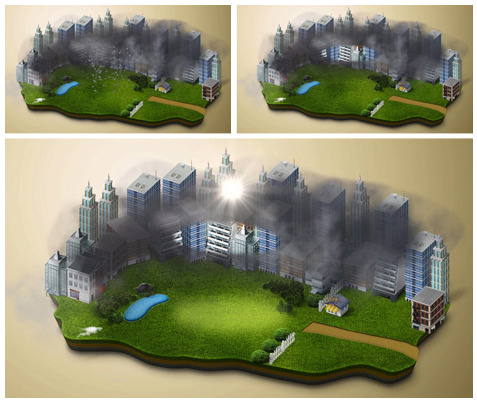Smart Cities: Present Tech Efforts Hint At Our Collective Future
The tech industry is scrambling to make us all smarter. Electrode-laden headsets have been crafted promising boosts in brain power. Homes are being connected to the wireless hivemind one accessory at a time. Cars are being taught to drive themselves. And amongst it all is the bigger picture as a whole, one that has received comparably less attention but that will affect us all together, for better or worse.
Smart cities are an inevitable result of our increasingly connected, sensor-filled, data-crunching daily existence, and that's not a bad thing. As part of this, Intel has just announced a partnership with the city of San Jose in California, under which the city will use Intel's Internet of Things Smart City Demonstration Platform to kick off a slew of green initiatives, including things like measuring air quality using sensor networks and improving resource efficiency.
Intel isn't the only company with Smart City ambitions, however. AT&T and IBM teamed up earlier this year to take The Internet of Things to a city-wide scale, with AT&T working on the connectivity aspect of its connected ambitions and IBM working to make sense of the massive amounts of data received.
Nokia HERE, of course, is also working hard at making cities smarter in its own way, mainly focusing on the gathering and analysis of data in relation to traffic. SlashGear spoke with HERE Research's head Jane MacFarlane last August, getting the low down on efforts that could lead to improved navigation both in the digital and real world.

Other efforts are more niche-specific and centralized, but no less important to the future of our cities and, by proxy, our planet. One such example is the "smog vacuum" featured above, the brainchild of Dutch designer Daan Roosegaarde designed to create holes of breathable air inside cities plagued with lung-destroying smog. The vacuums work using copper coils buried beneath the ground generating an electrostatic field pulling in pollution.
Such efforts are at different points in their development, with some already being implemented to various degrees and others remaining a concept in hope of funding. Regardless, each serves as its own example of what we can expect in future cities: predictions based on the mass-collection of data, improved architecture better tailored to a specific city's needs, neutralized pollution, reduced car crashes, better preparations for storms, and, at the personal level, a life augmented by an endless stream of ever-shifting data.
